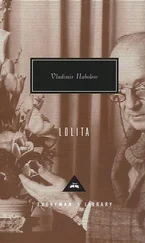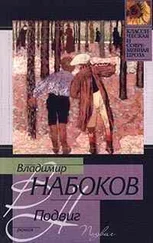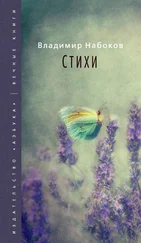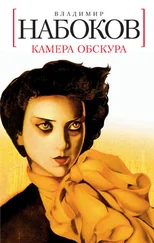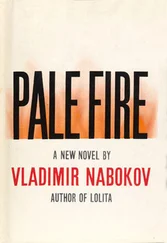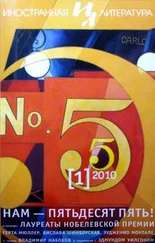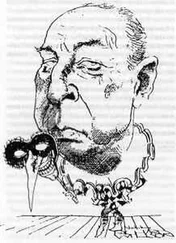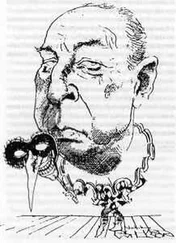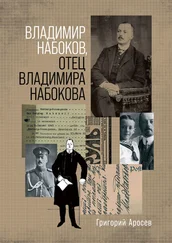Владимир Набоков - Pale Fire
Здесь есть возможность читать онлайн «Владимир Набоков - Pale Fire» весь текст электронной книги совершенно бесплатно (целиком полную версию без сокращений). В некоторых случаях можно слушать аудио, скачать через торрент в формате fb2 и присутствует краткое содержание. Жанр: Классическая проза, на английском языке. Описание произведения, (предисловие) а так же отзывы посетителей доступны на портале библиотеки ЛибКат.
- Название:Pale Fire
- Автор:
- Жанр:
- Год:неизвестен
- ISBN:нет данных
- Рейтинг книги:4 / 5. Голосов: 1
-
Избранное:Добавить в избранное
- Отзывы:
-
Ваша оценка:
- 80
- 1
- 2
- 3
- 4
- 5
Pale Fire: краткое содержание, описание и аннотация
Предлагаем к чтению аннотацию, описание, краткое содержание или предисловие (зависит от того, что написал сам автор книги «Pale Fire»). Если вы не нашли необходимую информацию о книге — напишите в комментариях, мы постараемся отыскать её.
Pale Fire — читать онлайн бесплатно полную книгу (весь текст) целиком
Ниже представлен текст книги, разбитый по страницам. Система сохранения места последней прочитанной страницы, позволяет с удобством читать онлайн бесплатно книгу «Pale Fire», без необходимости каждый раз заново искать на чём Вы остановились. Поставьте закладку, и сможете в любой момент перейти на страницу, на которой закончили чтение.
Интервал:
Закладка:
Pale Fire by Vladimir Nabokov
To Vera
This reminds me of the ludicrous account he gave Mr. Langton, of the despicable state of a young gentleman of good family. "Sir, when I heard of him last, he was running about town shooting cats." And then in a sort of kindly reverie, he bethought himself of his own favorite cat, and said, "But Hodge shan't be shot: no, no, Hodge shall not be shot."
--JAMES BOSWELL, the Life of Samuel Johnson
Foreword
Pale Fire, a poem in heroic couplets, of nine hundred ninety-nine lines, divided into four cantos, was composed by John Francis Shade (born July 5, 1898, died July 21, 1959) during the last twenty days of his life, at his residence in New Wye, Appalachia, U.S.A. The manuscript, mostly a Fair Copy, from which the present text has been faithfully printed, consists of eighty medium-sized index cards, on each of which Shade reserved the pink upper line for headings (canto number, date) and used the fourteen light-blue lines for writing out with a fine nib in a minute, tidy, remarkably clear hand, the text of his poem, skipping a line to indicate double space, and always using a fresh card to begin a new canto.
The short (166 lines) Canto One, with all those amusing birds and parhelia, occupies thirteen cards. Canto Two, your favorite, and that shocking tour de force, Canto Three, are identical in length (334 lines) and cover twenty-seven cards each. Canto Four reverts to One in length and occupies again thirteen cards, of which the last four used on the day of his death give a Corrected Draft instead of a Fair Copy.
A methodical man, John Shade usually copied out his daily quota of completed lines at midnight but even if he recopied them again later, as I suspect he sometimes did, he marked his card or cards not with the date of his final adjustments, but with that of his Corrected Draft or first Fair Copy. I mean, he preserved the date of actual creation rather than that of second or third thoughts. There is a very loud amusement park right in front of my present lodgings.
We possess in result a complete calendar of his work. Canto One was begun in the small hours of July 2 and completed on July 4. He started the next canto on his birthday and finished it on July 11. Another week was devoted to Canto Three. Canto Four was begun on July 19, and as already noted, the last third of its text (lines 949-999) is supplied by a Corrected Draft. This is extremely rough in appearance, teeming with devastating erasures and cataclysmic insertions, and does not follow the lines of the card as rigidly as the Fair Copy does. Actually, it turns out to be beautifully accurate when you once make the plunge and compel yourself to open your eyes in the limpid depths under its confused surface. It contains not one gappy line, not one doubtful reading. This fact would be sufficient to show that the imputations made (on July 24, 1959) in a newspaper interview with one of our professed Shadeans - who affirmed without having seen the manuscript of the poem that it "consists of disjointed drafts none of which yields a definite text" - is a malicious invention on the part of those who would wish not so much to deplore the state in which a great poet's work was interrupted by death as to asperse the competence, and perhaps honesty, of its present editor and commentator.
Another pronouncement publicly made by Prof. Hurley and his clique refers to a structural matter. I quote from the same interview: "None can say how long John Shade planned his poem to be, but it is not improbable that what he left represents only a small fraction of the composition he saw in a glass, darkly." Nonsense again! Aside from the veritable clarion of internal evidence ringing throughout Canto Four, there exists Sybil Shade's affirmation (in a document dated July 25, 1959) that her husband "never intended to go beyond four parts." For him the third canto was the penultimate one, and thus I myself have heard him speak of it, in the course of a sunset ramble, when, as if thinking aloud, he reviewed the day's work and gesticulated in pardonable self-approbation while his discreet companion kept trying in vain to adapt the swing of a long-limbed gait to the disheveled old poet's jerky shuffle. Nay, I shall even assert (as our shadows still walk without us) that there remained to be written only one line of the poem (namely verse 1000) which would have been identical to line 1 and would have completed the symmetry of the structure, with its two identical central parts, solid and ample, forming together with the shorter flanks twin wings of five hundred verses each, and damn that music. Knowing Shade's combinational turn of mind and subtle sense of harmonic balance, I cannot imagine that he intended to deform the faces of his crystal by meddling with its predictable growth. And if all this were not enough - and it is, it is enough - I have had the dramatic occasion of hearing my poor friend's own voice proclaim on the evening of July 21 the end, or almost the end, of his labors. (See my note to line 991.)
This batch of eighty cards was held by a rubber band which I now religiously put back after examining for the last time their precious contents. Another, much thinner, set of a dozen cards, clipped together and enclosed in the same manila envelope as the main batch, bears some additional couplets running their brief and sometimes smudgy course among a chaos of first drafts. As a rule, Shade destroyed drafts the moment he ceased to need them: well do I recall seeing him from my porch, on a brilliant morning, burning a whole stack of them in the pale fire of the incinerator before which he stood with bent head like an official mourner among the wind-borne black butterflies of that backyard auto-da-fé. But he saved those twelve cards because of the unused felicities shining among the dross of used draftings. Perhaps, he vaguely expected to replace certain passages in the Fair Copy with some of the lovely rejections in his files, or, more probably, a sneaking fondness for this or that vignette, suppressed out of architectonic considerations, or because it had annoyed Mrs. S., urged him to put off its disposal till the time when the marble finality of an immaculate typescript would have confirmed it or made the most delightful variant seem cumbersome and impure. And perhaps, let me add in all modesty, he intended to ask my advice after reading his poem to me as I know he planned to do.
In my notes to the poem the reader will find these canceled readings. Their places are indicated, or at least suggested, by the draftings of established lines in their immediate neighborhood. In a sense, many of them are more valuable artistically and historically than some of the best passages in the final text. I must now explain how Pale Fire came to be edited by me.
Immediately after my dear friend's death I prevailed on his distraught widow to forelay and defeat the commercial passions and academic intrigues that were bound to come swirling around her husband's manuscript (transferred by me to a safe spot even before his body had reached the grave) by signing an agreement to the effect that he had turned over the manuscript to me; that I would have it published, without delay, with my commentary by a firm of my choice; that all profits, except the publisher's percentage, would accrue to her; and that on publication day the manuscript would be handed over to the Library of Congress for permanent preservation. I defy any serious critic to find this contract unfair. Nevertheless, it has been called (by Shade's former lawyer) "a fantastic farrago of evil," while another person (his former literary agent) has wondered with a sneer if Mrs. Shade's tremulous signature might not have been penned "in some peculiar kind of red ink." Such hearts, such brains, would be unable to comprehend that one's attachment to a masterpiece may be utterly overwhelming, especially when it is the underside of the weave that entrances the beholder and only begetter, whose own past intercoils there with the fate of the innocent author.
Читать дальшеИнтервал:
Закладка:
Похожие книги на «Pale Fire»
Представляем Вашему вниманию похожие книги на «Pale Fire» списком для выбора. Мы отобрали схожую по названию и смыслу литературу в надежде предоставить читателям больше вариантов отыскать новые, интересные, ещё непрочитанные произведения.
Обсуждение, отзывы о книге «Pale Fire» и просто собственные мнения читателей. Оставьте ваши комментарии, напишите, что Вы думаете о произведении, его смысле или главных героях. Укажите что конкретно понравилось, а что нет, и почему Вы так считаете.

